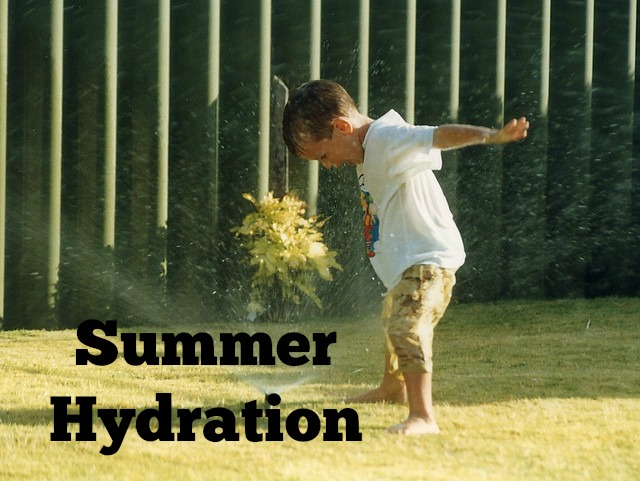Hydration: the act or process of combining or treating with water: the introduction of additional fluid into the body
Summertime has arrived in Portland and the importance of proper hydration cannot be overstated. Our bodies require water to stay alive. Humans can survive for over 30 days without food but a mere 3-5 days without water will lead to death. In fact, over half of our body weight is water. Our body uses water for lubricating joints, flushing toxins, nutrient transportation and maintaining proper body temperature. Water is involved in almost every bodily function. Poor hydration can lead to constipation, dry and itchy skin, acne, nose bleeds, repeated urinary tract infections, dry coughs, sneezing, sinus pressure, headaches and fatigue. In fact, a drop in body water as small as 2% can lead to short-term memory problems and difficulty focusing to read a computer screen or printed page.
Without adequate water consumption, our body will not be able to remove the toxic substances it produces. Uric acid, urea and lactic acids are all waste products produced by our own bodies. Our kidneys require sufficient water to dissolve these toxic substances and remove them from the body. Gout, sore muscles and other difficulties can arise if these substances aren’t removed.
Signs of dehydration:
· Feeling thirsty
· Dark colored or scant urine
· Confusion
· Headaches
· Weakness
· Fainting
· Dizziness
· Heart palpitations
· Inability to sweat
· No tears
· Muscle cramps
Recommended Daily Amount of Water:
Recommendations for the amount of water necessary for the average person vary according to activity level, climate, age and other factors. The Institute of Medicine recommends that women take in about 11 cups of fluid a day, and men take in about 15 cups, but that includes liquids found in foods too. Fruits and vegetables add up, since most are at least 80 percent water by weight. For most people, a well-balanced diet combined with 8 glasses of water a day should provide sufficient hydration. One of the simplest methods of checking for dehydration is looking at the color of your urine. If your urine is clear or a pale yellow color, you are most likely receiving adequate hydration.
Some people may need more water to maintain optimal health. Those with certain medical conditions, such as kidney stones or bladder infections, those who are vomiting or have diarrhea and women who are pregnant or breastfeeding will require more water. Also those who spend more time outside in hot weather or are going to be exercising will have an increased need for water. As we age, our ability to detect thirst decreases so elderly people need to be more vigilant about staying hydrated.
Sources of Hydration:
Water and liquids found in food should be your primary sources of hydration. Coconut water, herbal teas, milk, smoothies and fruit and vegetable juices can also contribute to your daily fluid intake. However, it is important to remember these liquids also add calories and sugar to your diet so they should be consumed in moderation. One to two cups of coffee a day can be acceptable. Keep in mind, however, caffeine and alcohol are both diuretics which will contribute to dehydration. There are many tasty and interesting ways to meet your daily hydration needs but water is usually the easiest, most economical and best option.
Check back tomorrow for a yummy recipe for a refreshing Watermelon Aqua Fresca.
See more beautiful photos from Allan Lee on flickr. Text added by me.

